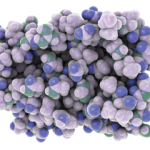Although the study did not achieve its primary endpoint, improvements associated with clinical benefits of anifrolumab were observed in many of the secondary endpoints. The 300 mg anifrolumab dose suppressed the interferon gene signature and was generally well tolerated.
Michele B. Kaufman, PharmD, BCGP, is a freelance medical writer based in New York City and a pharmacist at New York Presbyterian Lower Manhattan Hospital.
ad goes here:advert-1
ADVERTISEMENT
SCROLL TO CONTINUE
Reference
- Furie R, Morand E, Bruce I, et al. A phase 3 randomized controlled trial of anifrolumab in patients with moderate to severe systemic lupus erythematosus (abstract 1763). Arthritis Rheumatol. 2019 Oct;71(suppl 10).



